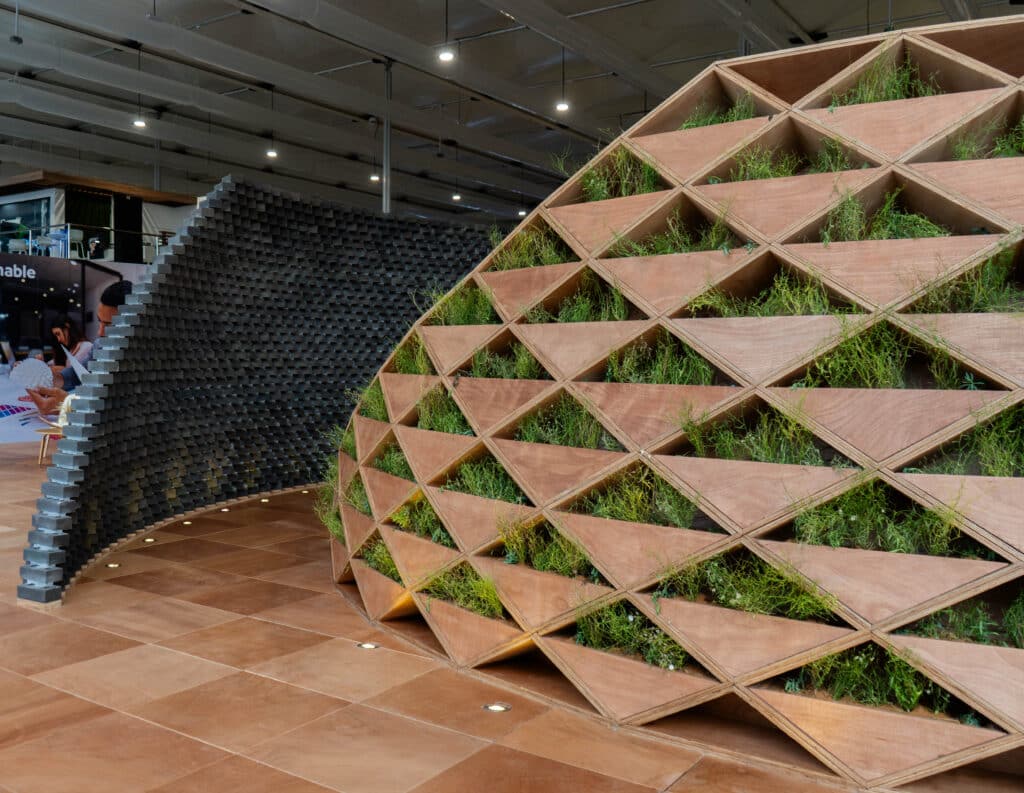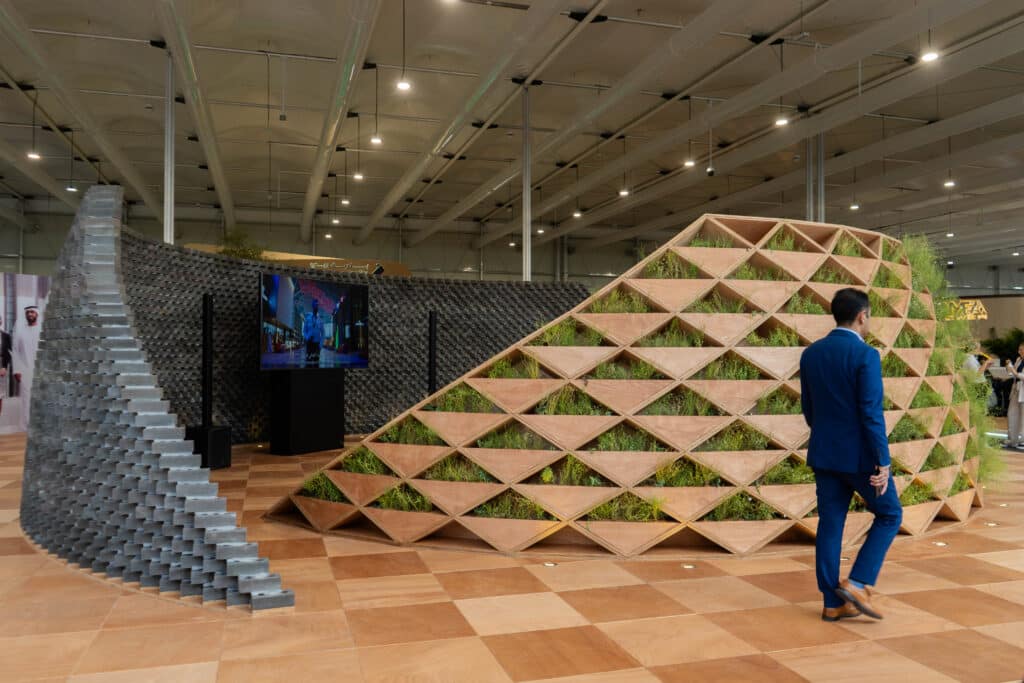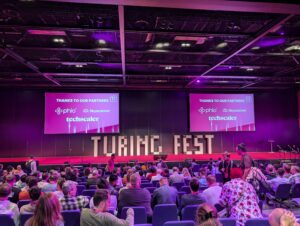Achieving sustainability one briq at a time
A wall built from bricks made by Scottish company Kenoteq using recycled construction waste has formed the centrepiece of one of the major showcase spaces at the 28th meeting of the United Nations Climate Change Conference (COP28).
Global investment company Dubai Holding’s presence in the Green Zone is built around a curved wall formed from the company’s K-BRIQ®, which was selected by internationally renowned architecture and engineering collective Skidmore, Owings & Merrill (SOM).
The wall – built from 7,000 bricks made using recycled waste from the construction industry – is paired with seating produced from Forest Stewardship Council (FSC) certified timber and a living wall containing greenery, giving Dubai Holding a sustainable space to engage with its guests.
Kenoteq has also built a 1,000-brick demonstration wall for Heriot-Watt University’s ClimateHub & Cleantech Exhibition at its Dubai campus, which is being used as a base during COP28 by a range of delegates including the first minister Humza Yousaf, net zero secretary Màiri McAllan, staff from Scottish Development International (SDI) and the Foreign Commonwealth & Development Office.
Use of the K-BRIQ instead of traditional clay bricks at the climate conference has delivered carbon savings of around three tonnes, while total production to date has made carbon savings of nearly 88 tonnes, demonstrating the enormous potential impact of its widespread use.
The two Dubai structures follow on from the success of the company’s demonstration wall built for the COP26 climate conference in Glasgow in 2021, which was displayed at the Construction Scotland Innovation Centre, now known as Built Environment – Smarter Transformation (BE-ST).
Kenoteq, which was spun out from Heriot-Watt University during 2019, produces its bricks at a waste recycling site near Edinburgh.
The company’s bricks, which won Sustainable Design of the Year in the 2022 Dezeen Awards, have also been incorporated into a range of statement interior projects. So far, 200,000 K-BRIQs have been produced, recycling 440 tonnes of construction and demolition waste – the equivalent of 6790 filled household wheelie bins.

Professor Gabriela Medero, co-founder of Kenoteq is attending COP28 to highlight circular economy solutions to international companies and policymakers. She said:
“Embracing the circular economy will be a key factor in limiting the rise in global temperatures and reaching net zero, and Kenoteq’s innovation has an important role to play in reaching those goals.
“COP28 is a great opportunity to show builders, architects, designers and government policymakers how they can slash their environmental impact by reconsidering their material choices. Our K-BRIQ produces 95% less embodied carbon than a traditional masonry brick and it’s made from recycled construction and demolition waste so it is protecting precious finite raw materials. It still delivers comparable strength to a traditional brick and its contents can be recycled again once it’s finished being used.
“The infrastructure in the United Arab Emirates (UAE) and other countries in the region is growing at pace. Taking the K-BRIQ to Dubai for COP28 is significant as it shows international businesses first-hand the potential of low carbon construction and design solutions.”
Huda Buhumaid, Chief Impact Officer, Dubai Holding, said: “We place environmental stewardship at the heart of our business and our showcase space at COP28 is testament to this. The use of bricks made from recycled construction waste exemplifies our commitment to sustainable innovation and our vision for the future of construction.”
Yasemin Kologlu, Principal at SOM said: “With climate action at the heart of our firm’s mission, we knew the design of this space offered an important opportunity to showcase new sustainable building materials. Kenoteq’s K-BRIQ demonstrates the importance of innovation and collaboration to help the built environment achieve a low-carbon future.”
The SOM team is regarded as a global force for good, with the firm being mentioned this month in Time magazine’s inaugural list of 100 of the world’s most influential leaders driving climate action in business.
Lucy Black, Kenoteq’s head of business development, who is attending COP28, added:
“Working with Dubai Holding to form an integral feature of their showcase space, designed by leading architecture company SOM, is an important step for Kenoteq. Opening local K-BRIQ production facilities would help to recycle construction and demolition waste and give the UAE and other countries globally a head-start when it comes to growing their circular economies, helping to save money and tackle the climate emergency.”




